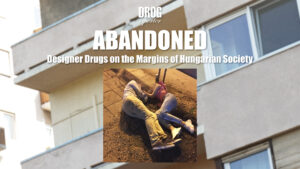One in three women will be assaulted by her intimate partner in her lifetime, but the most vulnerable of them will be deathly afraid of seeking help. Why? The inescapable stigma surrounding drug use.
Illegal drug use itself is not the cause of violence, but a complicating factor: women often self-medicate to deal with the trauma of abuse, or they are coerced into using drugs as part of the abuse. Either way the end result is isolation, and she cannot reach out to police, shelters, or other services for help.
Though the relationship between domestic violence and alcohol is fairly clear, the connection with illicit drugs is less so. Female survivors are more than 1.8 times more likely to report drinking, and 80% of men who abused their female partner drank excessively in the year prior to the incident. But many studies have found no relationship with substance use, and the effect of illicit drugs without alcohol is even less certain.
There is only one real common factor: mental illness. Most everyone who experiences domestic violence will develop some form of post-traumatic stress disorder. They have sleep issues, trouble making decisions, irrational guilt, reduced ability to trust others, and a reduced sense of self-worth. They can develop anxiety, manifested as constant worry or in panic attacks, or mild to severe depression.
Domestic violence worsens mental problems because it leads to social isolation. Above all, abusers seek to control their partners; they convince their partner that their relationship is all that matters, and they try to control their social life. An ongoing victim might also cut off relationships themselves; they feel shame, stop telling their friends and family about their personal life, and lose touch. Of course, domestic violence does also occur without this happening.
In the worst cases of domestic abuse, women may turn to illicit drugs for relief. Studies have shown people are more likely to engage in risky drug use if they do not have a support network, and when they have severe trauma. These worst-case scenarios are the real reason for the association between drug use and domestic violence; women who enroll in drug dependence programs are five times more likely to have experienced intimate partner violence in the past year.
Unfortunately, most drug dependence programs are not capable of handling domestic violence. Staff in the U.S. have said that they do not have the training or tools to help their clients. But outside these programs, their drug use is treated as the real problem, rather than their partner’s violent behavior. Many hospitals are more likely to report drug use than violence to the police. This adds to an existing problem: only 27 percent of women and only 14 percent of men who were physically assaulted by an intimate partner reported to law enforcement.
How can we encourage domestic violence victims to seek help? Even if they were willing, police officers commit domestic violence at much higher rates than average. And as some high-profile cases in the U.S. demonstrated last year, sexual assault is rarely reported, rarely results in a trial, and cases that do go to trial rarely lead to conviction.
We can start by destigmatising drug use. This means help for drug users through harm reduction programs, which attempt to make drug use safer and offer a lifeline to connect people to basic healthcare. These programs are criminally underfunded in most countries around the world, despite how cost-effective and lifesaving they are.
We can also equip domestic violence shelters to deal with dependent drug users. Many shelters refuse access to women who use drugs, either by preference or because of misguided laws. There are subtleties to the intersecting problems of trauma and drug use that most staff cannot appreciate.
In the long run, more focus is needed on perpetrators of violence, not survivors. Research has unfortunately been inadequate on abusers, but it has demonstrated that their previous perpetration of violence, and not substance abuse, is most highly related to their later perpetration of violence. Much as with sexual assault, there are repeat offenders that are not held accountable.
Intimate partner violence is best understood as an ongoing power dynamic wherein an abuser attempts to control their romantic partner. And drug use is best understood in these relationships as a complicating factor; it is too often analysed as a cause, and not understood well enough as part of larger structural problems. Denying users’ access to services further marginalises the most vulnerable, and women’s shelters in particular must recognise this.
Jonathan Brozdowski






